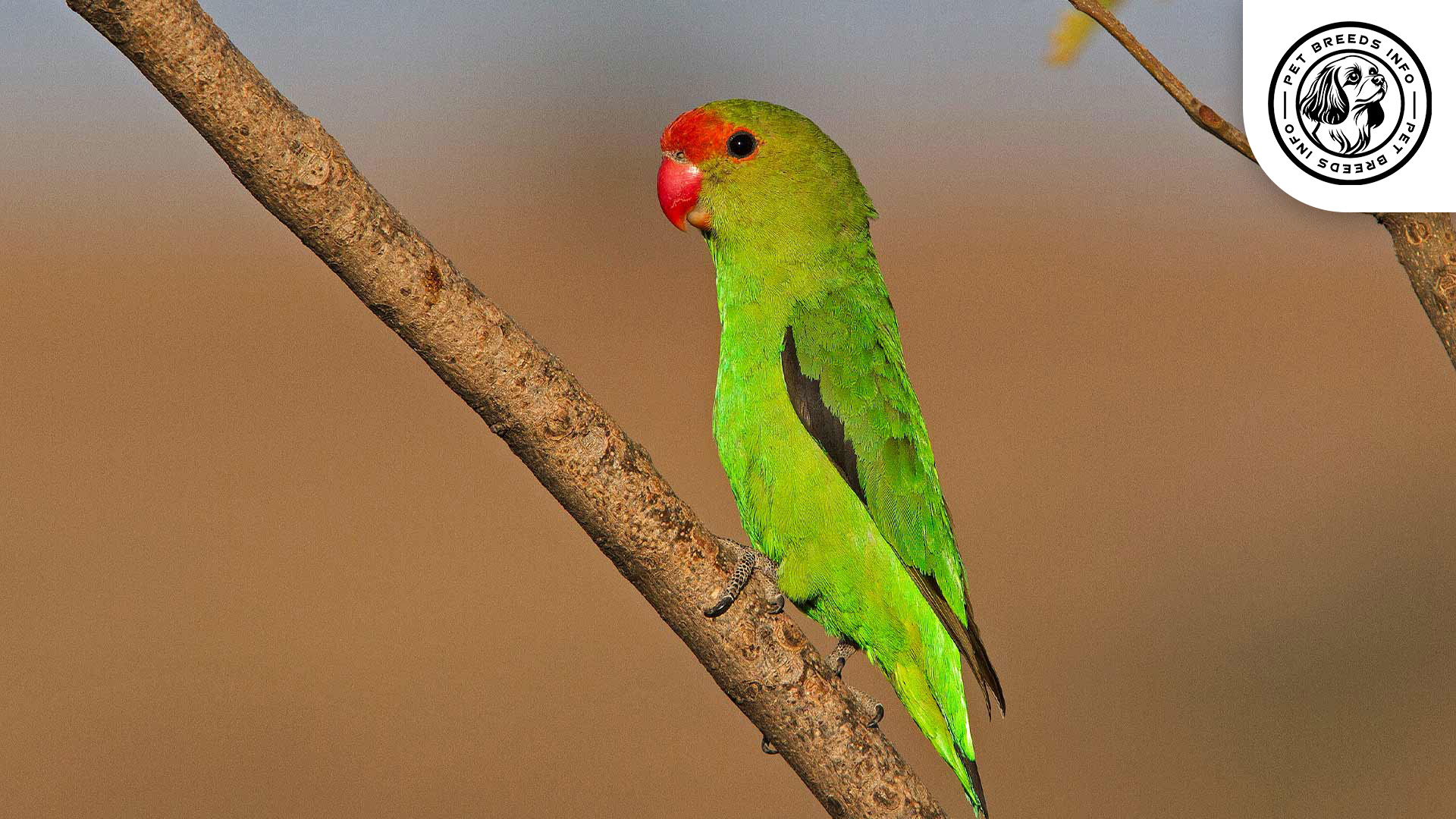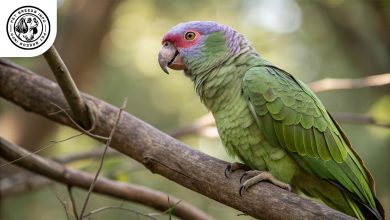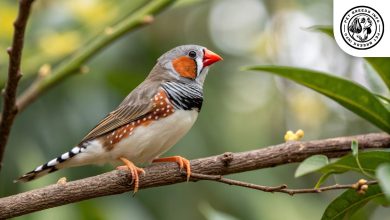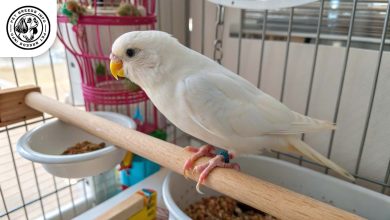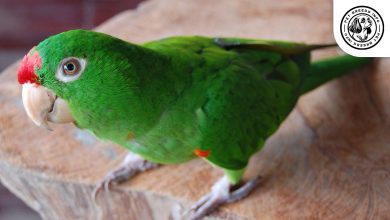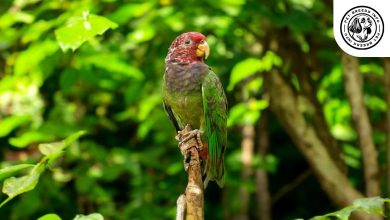Black-winged Lovebird: Personality, Lifespan, Food & Care
General Introduction of the Breed
The Black-winged Lovebird (Agapornis taranta) is a small parrot species native to East Africa, specifically Ethiopia and Eritrea. It is also known as the Abyssinian Lovebird. These lovebirds are highly sought after for their affectionate nature and striking coloration.
Originally discovered in the 19th century, the Black-winged Lovebird has remained a popular pet among bird enthusiasts. Unlike many other lovebird species, they exhibit subtle sexual dimorphism, making them easier to differentiate between males and females.
Table of Contents
| Common Name | Black-winged Lovebird, Abyssinian Lovebird |
| Scientific Name | Agapornis taranta |
| Origin | East Africa (Ethiopia and Eritrea) |
| Size | Around 15 cm (5.9 inches) |
| Lifespan | Around 15 years |
| Talking Ability | Implied to be capable of learning simple tricks (not specifically “talking”) |
| Colors | Primarily green, black flight feathers, red forehead (males), white eye-ring, red beak |
| Noise Level | Moderately active, implying a moderate noise level |
| Social Behavior | Social, affectionate with owners, may not interact peacefully with other birds, prefers companionship |
Physical Characteristics
Black-winged Lovebirds are medium-sized lovebirds, measuring around 15 cm (5.9 inches) in length. They typically weigh between 43 to 53 grams (1.5 to 1.9 ounces).
Their plumage is primarily green, with black flight feathers giving them their name. Males have a distinctive red forehead, which females lack.
The eyes are dark brown and have a bright white eye-ring, a common feature among many lovebird species.
They have a short, curved beak that is bright red in color, strong enough to crack seeds and small fruits. Their tails are short yet well-formed, and their wings are slightly rounded.
Read More: Bare-eyed Cockatoo Bird
Personality and Temperament
Black-winged Lovebirds are highly intelligent and capable of learning simple tricks. They are social birds and enjoy interacting with their owners.
They are moderately active and require mental stimulation through toys and interaction. If left alone for long periods, they can become bored and may develop unwanted behaviors.
They tend to form strong bonds with their owners and can be very affectionate. However, they may be shy or reserved around strangers.
These lovebirds generally get along well with their human companions but may not always interact peacefully with other birds. They may show dominance over smaller or more docile bird species.
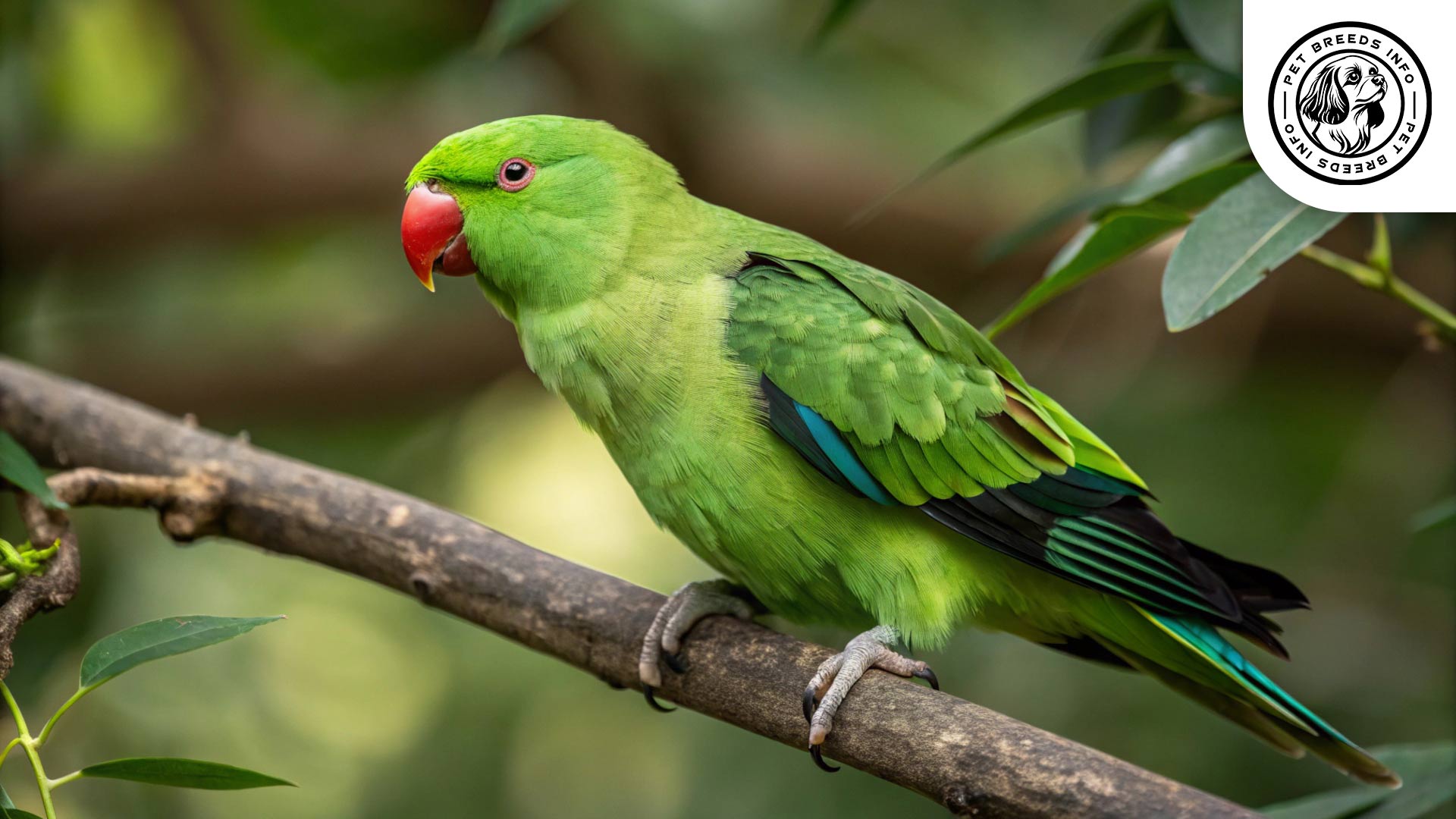
Care and Maintenance Requirements
These birds require moderate physical activity such as flying within a large-sized cage or supervised free-flight sessions in a safe environment.
They can adapt well to apartments as long as they receive enough interaction and exercise.
Regular grooming includes checking their beak and nails for overgrowth. Bathing is essential, as they enjoy mist showers or shallow water baths.
They thrive in mild temperatures and may suffer in extreme cold or excessive humidity.
Diet and Nutrition
A well-balanced diet includes high-quality pellets, fresh fruits, and vegetables. Seeds should be offered in moderation as they can lead to fatty liver disease.
Foods to avoid include avocado, chocolate, caffeine, onions, and salty or sugary foods.
Portion control is essential to prevent obesity, and fresh water should always be available.
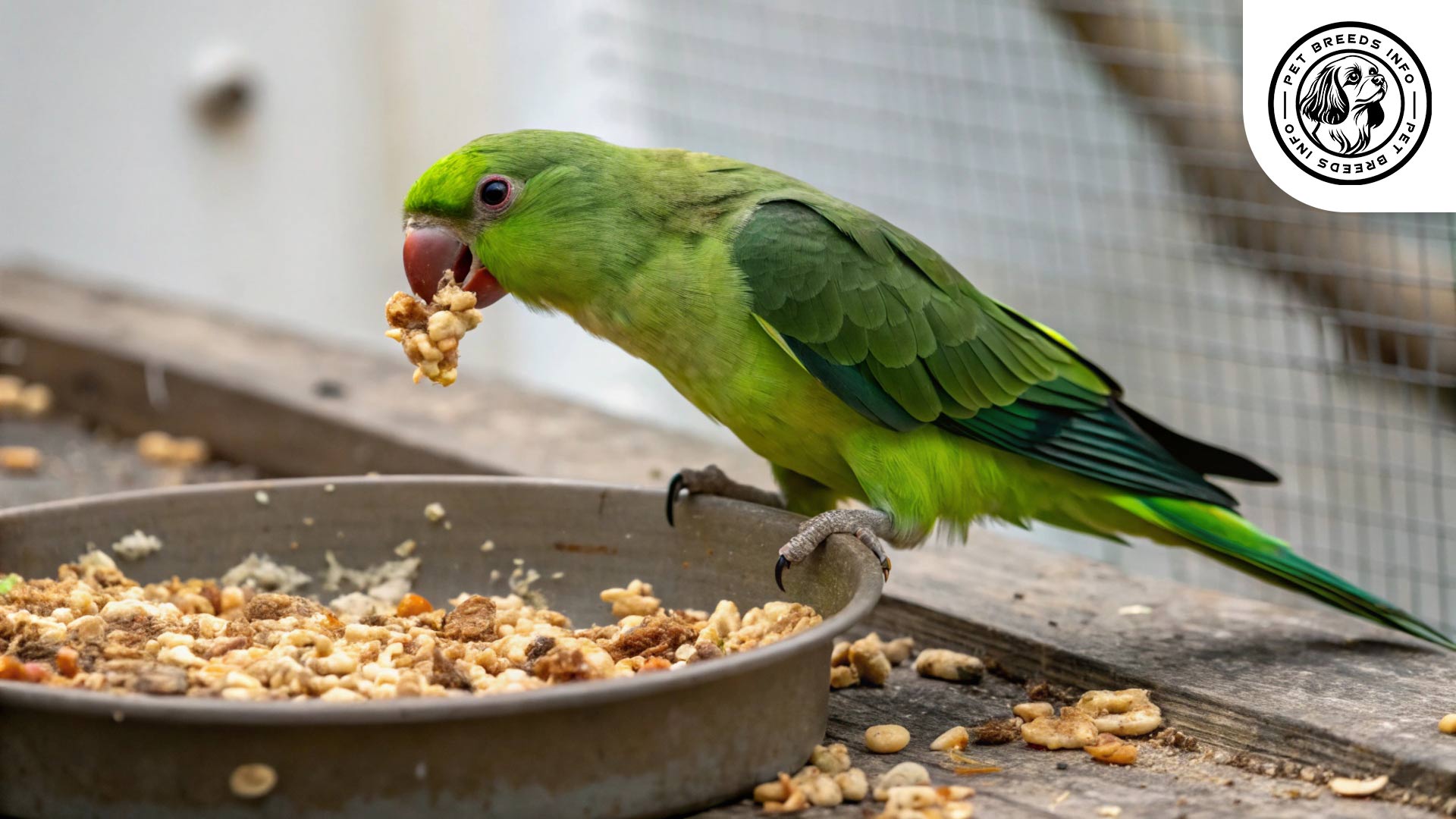
Health and Common Medical Issues
Black-winged Lovebirds are generally healthy but can suffer from common avian issues such as respiratory infections, feather plucking, and vitamin A deficiencies.
The average lifespan of a Black-winged Lovebird is around 15 years, with proper care and a healthy diet.
Regular veterinary check-ups and vaccinations against common parrot diseases are recommended.
Read More: Anthracite Budgerigar
Training and Behavior Management
These lovebirds are trainable with patience and consistency. Positive reinforcement works best.
Early socialization helps prevent shyness and aggression.
Training techniques like clicker training and hand-taming help reinforce useful behaviors.
Interaction with Other Animals and Humans
Black-winged Lovebirds can be affectionate with human caregivers but may not always tolerate other bird species.
They can be suited for families with older children who understand gentle handling.
They prefer companionship and may suffer from loneliness if kept alone for extended periods.
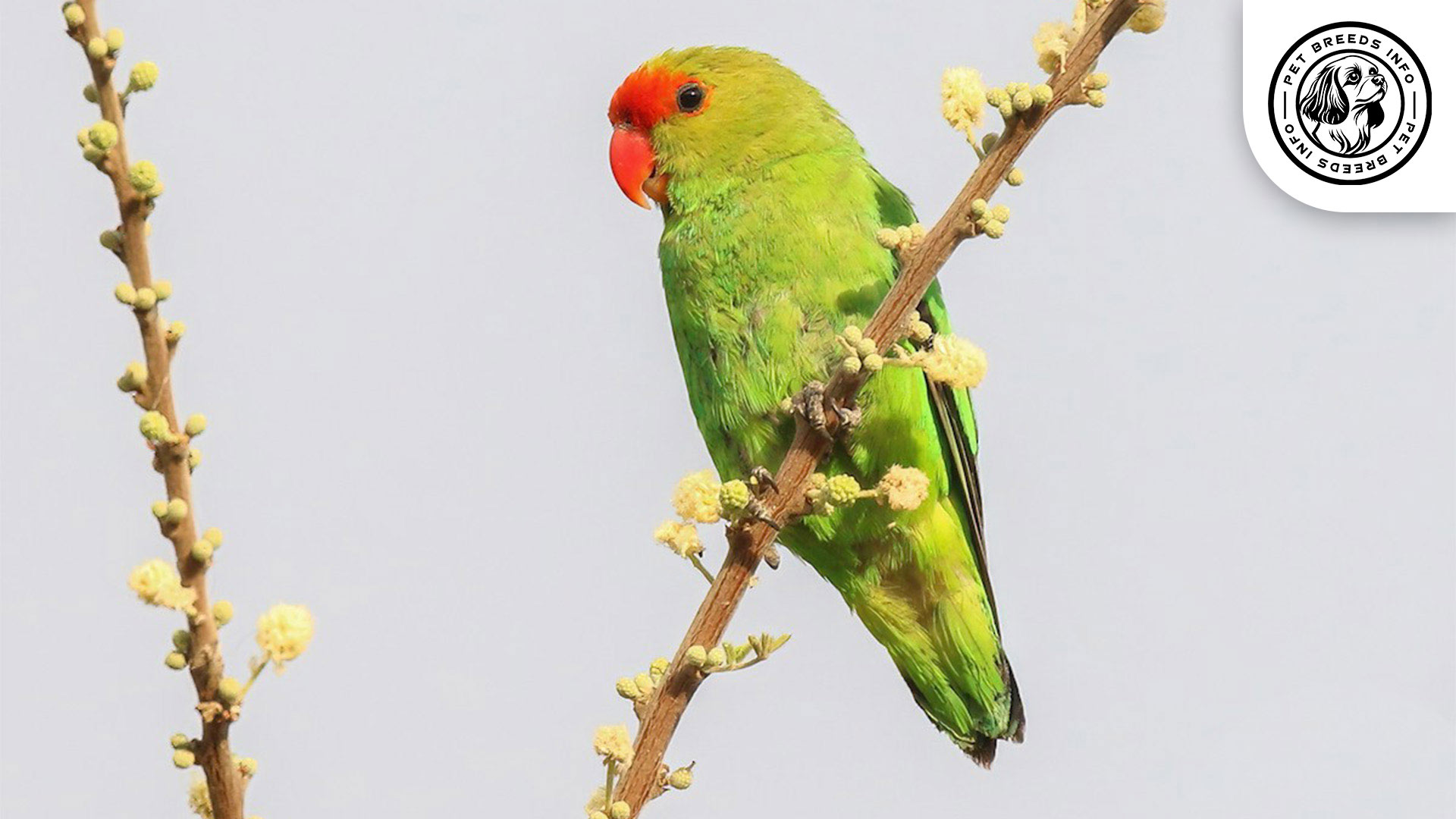
Price and Availability
The cost of a Black-winged Lovebird ranges from $100 to $300, depending on the breeder and location.
Reputable breeders, exotic bird rescues, and avian pet stores are good sources for acquiring this species.
Conclusion and Final Thoughts
The Black-winged Lovebird is an ideal pet for bird enthusiasts who have time to devote to socialization and care.
They thrive in a home where they receive plenty of attention, making them great for single owners or families looking for an interactive pet.
Prospective owners should consider their social nature and provide adequate stimulation to keep them happy.
Read More: African Dove
FAQ
What is a key physical difference between male and female Black-winged Lovebirds?
Males have a distinctive red forehead, which females lack.
Do Black-winged Lovebirds enjoy being alone?
No, they are social birds and prefer companionship, potentially suffering from loneliness if kept alone for long periods.
What is the typical lifespan of a Black-winged Lovebird?
With proper care and a healthy diet, they can live for around 15 years.
What kind of diet do Black-winged Lovebirds need?
A well-balanced diet of high-quality pellets, fresh fruits, and vegetables, with seeds offered in moderation.
Are Black-winged Lovebirds good with other birds?
They may not always interact peacefully with other bird species and can show dominance.
